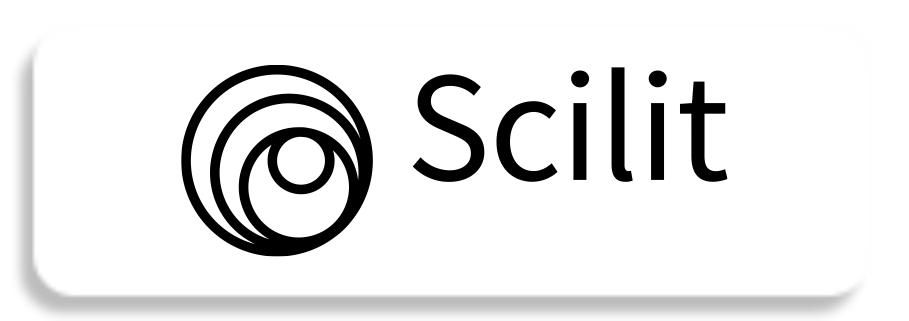Optimizing citizenship education for ecological awareness: Analysis of the effectiveness of the lihat sampah ambil (LISA) program in environmental conservation
DOI:
https://doi.org/10.62568/jplse.v1i1.50Keywords:
Civic education, ecological awareness, environmental conservation, LISA programAbstract
Given that the problems associated with waste pollution can result in air pollution and even natural disasters, waste pollution is an intriguing topic to examine. According to a number of estimates, Indonesia will produce 67 tons of waste in 2020, and this amount would likely rise annually. In order to prevent and develop students' environmentally caring character from an early age, it is necessary to create an environmental awareness formation program in the secondary school environment. This problem arises from a lack of public awareness and concern for the surrounding environment. To take this preventive action, SMP Dharma Pancasila Medan established the LISA (Lihat Sampah Ambil) initiative. This application was made based on the ideas of the PPKn teacher at the school. The LISA program has been running for one year at Dharma Pancasila Middle School in Medan. The implementation of the LISA program at Dharma Pancasila Middle School in Medan received positive results, although at the beginning of the implementation of this program there were several common problems that arose from students and teachers at the school. However, within one year of implementing the LISA program, the environment at Dharma Pancasila Middle School is now much cleaner than before, and there is no longer any rubbish scattered around the school environment.
References
Aditya, A. F. (2020, June 17). Jumlah sampah nasional 2020 mencapai 67,8 juta ton.
Agmasari, S. (2021, October 27). Sampah makanan di Indonesia jadi permasalahan serius. https://www.kompas.com/food/read/2021/10/27/133600175/sampah-makanan-diindonesia-jadi-permasalahan-serius-?page=all
Ajiboye, J. O., & SILO, N. (2009). 13. ENVIRONMENTAL EDUCATION IN BOTSWANA. Environmental Education in Context: An International Perspective on the Development Environmental Education, 137.
Carlsson, M., & Jensen, B. B. (2006). Encouraging environmental citizenship: The roles and challenges for schools. Environmental citizenship, 237-261.
Clarke, L., & Agyeman, J. (2011). Shifting the balance in environmental governance: ethnicity, environmental citizenship and discourses of responsibility. Antipode, 43(5), 1773-1800.
Corraliza, J. A., & Collado, S. (2019). Ecological awareness and children’s environmental experience. Papeles Del Psicologo, 40(3).
Creswell, J. W. (2014). Research design qualitative, quantitative, and mixed method approaches. SAGE Publication. Inc.
Curtin, Deane W. (1999). Chinnagounder’s Challenge: The Question of Ecological Citizenship. Bloomington: Indiana University Press.
Dobson, A. (2003). Citizenship and the Environment. OUP Oxford.
Dobson, Andrew and Derek Bell. (2006). Introduction. In Environmental Citizenship, ed. A. Dobson and D. Bell, 3-17. Cambridge, MA: MIT Press.
Dobson, Andrew, and Ángel Valencia Sáiz. (2005). Introduction. Environmental Politics 14(2): 157-162.
Gani, S. A., Muthalib, K. A., Yusuf, T. R., & Gani, B. A. (2023). The Environment Education Policy in Behavior Commitment of Stakeholders for the Environmental Sustainability. Polish Journal of Environmental Studies, 32(2).
Gough, S., & Scott, W. (2006). Promoting environmental citizenship through learning: Toward a theory of change. Environmental citizenship, 263-285.
Indonesia, S. (2018). Badan pusat statistik. BPS-Statistics Indonesia.
Izharsyah, R. J. (2020). ANALISIS STRATEGIS PEMKO MEDAN DALAM MELAKUKAN SISTEM PENGELOLAAN SAMPAH BERBASIS OPEN DUMPING MENJADI SANITARY LANDFILL. Jurnal Ilmiah Muqoddimah, 4(2), 109-117.
Jannah, R. (2018). Menciptakan Kewarganegaraan Ekologis Di Era Digital Melalui Kampoeng Recycle Jember. Journal of Urban Sociology, 1(2), 15-26.
Jelin, E. (2000). Towards a global environmental citizenship?. Citizenship studies, 4(1), 47-63.
Kelani, R. R. (2015). Integration of environmental education in science curricula in secondary schools in Benin, West Africa: Teachers’ perceptions and challenges. The Electronic Journal for Research in Science & Mathematics Education, 19(3).
Kiarie, S. M. (2016). Effects of Teachers' Perceptions on Students' Perceptions and Achievement in Environmental Education in Secondary School Biology in Gilgil Sub-County Nakuru County, Kenya. International Journal of Environmental and Science Education, 11(12), 5736-5761.
Kimaryo, L. (2011). Integrating environmental education in primary school education in Tanzania: Teachers’ perceptions and teaching practices.
Ko, A. C. C., & Lee, J. C. K. (2003). Teachers' perceptions of teaching environmental issues within the science curriculum: A Hong Kong perspective. Journal of Science Education and Technology, 12, 187-204.
Latta, A., & Garside, N. (2005). Perspectives on ecological citizenship: an introduction. Environments, 33(3), 1.
Latta, P. A. (2007). Locating democratic politics in ecological citizenship. Environmental politics, 16(3), 377-393.
Lupton, Deborah (2013) Introducing digital sociology. Sydney: University of Sydney
MacGregor, Sherilyn. (2006). Beyond Mothering Earth: Ecological Citizenship and the Politics of Care. Vancouver: University of British Columbia Press.
Marjohan, M., & Afniyanti, R. (2018). Penerapan Nilai Pendidikan Karakter Peduli Lingkungan Di Kelas Tinggi Sekolah Dasar. Jurnal Gentala Pendidikan Dasar, 3(1), 111-126.
Mwanza, D. S. (2016). The Eclectic Approach to language Teaching: Its Conceptionalisastion and Misconceptions. IJHSSE, 4 (2), 53-67.
Nsamenang, A. B., & Therese, M. S. Tchombe, eds. 2011. Handbook of African Education Theories and Practices: A Generative Teacher Education Curriculum.
Nurmalina, K. & Syaifullah. (2008). Memahami Pendidikan Kewarganegaraan. Bandung: Laboratorium Pendidikan Kewarganegaraan Fakultas Pendidikan Ilmu Pengetahuan Sosial Universitas Pendidikan Indonesia.
Pratomo, W., Nadziroh, N., Chairiyah, C., & Andini, A. (2023). Peran Guru dalam Menanamkan Nilai Karakter Peduli Lingkungan Pada Pembelajaran PPKn Kelas V Sekolah Dasar. Sistem-Among: Jurnal Pendidikan Sekolah Dasar, 3(1), 15-25.
Saputra, N., Siagian, N., Owon, R. A. S., & Rawadhy, I. (2022, December). The correlation of environmental education, environmental knowledge, environmental involvement, and waste management behavior. In IOP Conference Series: Earth and Environmental Science (Vol. 1105, No. 1, p. 012008). IOP Publishing.
Siagian, N., Ridayani, Andrias, Kamsinah, Maryanti, E., Fatmawati, E., ... & Fajri, I. (2023). The effect of environmental citizenship and spiritual norms as mediators on students’ environmental behaviour. International Journal of Adolescence and Youth, 28(1), 2231511.
Siregar, M., Meilani, M. S., Purwanto, A. (2021). Pengenalan Ecoliteracy pada Anak Usia Dini melalui Metode Bercerita. Jurnal Obsesi: Jurnal Pendidikan Anak Usia Dini, 5(1), 719-728.
SITUMORANG, M. (2021). KARYA TULIS ILMIAH PENGELOLAAN SAMPAH PADAT MEDIS DI RUMAH SAKIT UMUM DAERAH H. ABDUL MANNAN SIMATUPANG KISARAN KABUPATEN ASAHAN TAHUN 2021.
Smith, M. (2005). Citizens, denizens and the res publica: Environmental ethics, structures of feeling and political expression. Environmental Values, 14(2), 145-162.
Smith, M. J. (1998). Ecologism: towards ecological citizenship. U of Minnesota Press.
Sugiyono. (2017). Metode penelitian kualitatif. Alfabeta.
Suhendar, A., Taufika, R., Rachmatsyah, R., Yusuf, R., Fajri, I., Yusoff, M. Z. M., & Adawiah, R. (2023). Eco-literacy and sustainable citizenship: The role of the school environment in shaping responsible environmental behavior. Sekumpul: Journal of Multidisciplinary Education Sciences, 1(1), 12-19.
Valencia Sáiz, Ángel. (2005). Globalisation, cosmopolitanism and ecological citizenship. Environmental Politics 14(2): 163-178.
Wierzbiński, B., Surmacz, T., Kuźniar, W., & Witek, L. (2021). The role of the ecological awareness and the influence on food preferences in shaping pro-ecological behavior of young consumers. Agriculture, 11(4), 345.
Winataputra, U.S., & Budimansyah, D. (2012). Civic Education. Bandung: Program Studi Pendidikan Kewarganegaraan SPS UPI.
Yusuf, R., & Fajri, I. (2022). Differences in behavior, engagement and environmental knowledge on waste management for science and social students through the campus program. Heliyon, 8(2).
Yusuf, R., Maimun, M., Sanusi, S., Saputra, J., & Gani, S. A. (2020). Identifying the green supply chain for environmental sanitation management in Banda Aceh, Indonesia. Int. J. Supply Chain Manag, 9, 1175-1185.
Yusuf, R., Maimun, S., Fajri, I., & Saputra, J. (2020). A comparison of student environmental literacy: Public and Islamic schools in Banda Aceh, Indonesia. International Journal of Innovation, Creativity and Change, 12(9), 222-239.
Yusuf, R., Sanusi, S., Maimun, M., Fajri, I., & Putra, I. (2020). Hubungan Antara Kewarganegaraan Lingkungan Terhadap Perilaku Lingkungan Siswa Di Sekolah Adiwiyata. Jurnal Pendidikan Kewarganegaraan, 10(1), 1-15.
Yusuf, R., Yunus, M., Maimun, M., & Fajri, I. (2022). Environmental Education: A Correlational Study among Environmental Literacy, Disaster Knowledge, Environmental Sensitivity, and Clean-Living Behavior of Post Tsunami Disaster in Aceh Communities, Indonesia. Polish Journal of Environmental Studies, 31(1).
Downloads
Submitted
Published
How to Cite
Issue
Section
License
Copyright (c) 2024 Aris Suhendar, Ridayani, Daska Azis, Mohd Zailani Mohd Yusoff, Anta Rini Utami

This work is licensed under a Creative Commons Attribution 4.0 International License.



















